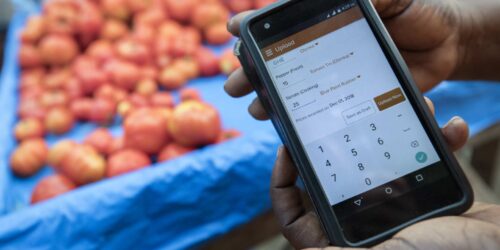
In 2021, Africa saw a remarkable surge in startup funding, with tech companies raising nearly $5 billion, double the amount from the previous year. Fintechs led the charge, securing close to $3 billion, which represented around two-thirds of the total funding. This trend highlights the ongoing transformation of Africa’s tech ecosystem, which has seen investments increase dramatically over the last five years.
Leading fintechs such as Opay, Flutterwave, and TymeBank raised significant rounds, with amounts ranging from $170 million to $400 million. Smaller players in the sector, including Jumo, MNT Halan, and MFS Africa, also secured substantial investments, demonstrating the growing interest in Africa’s digital finance landscape.
The continent’s growing mobile subscriber base, which is expected to reach 615 million by 2025, plays a crucial role in this surge. As more people gain access to mobile phones and the internet, the adoption of digital banking, payments, and lending services is expected to continue expanding, creating a fertile ground for fintech innovations.

According to financial analysts, Africa’s unique demographic and economic growth, combined with an underdeveloped financial services ecosystem, makes it a prime market for fintech solutions. Established players like Visa and Mastercard are joined by regional champions such as Flutterwave and Chipper Cash, with the sector poised for further expansion into new fintech verticals such as lending, KYC (Know Your Customer), and decentralized finance.
The digital payments sector, in particular, has seen the most growth, with mobile money and digital payments enabling more efficient transactions both online and offline. Innovations like USSD (Unstructured Supplementary Service Data), STK (SIM Tool Kit), and NFC (Near Field Communication) technology have made financial services more accessible, even in areas with limited internet connectivity.Startups are addressing some of Africa’s most pressing financial challenges, such as remittances, by offering affordable and efficient cross-border money transfers. Services from companies like Paga, SureRemit, and Wari have greatly simplified sending and receiving money across borders, a crucial service for the large African diaspora.
Africa’s fintech market is expected to keep growing, as the continent is predicted to be the second-fastest growing payments and banking market globally. Mobile money has already become a significant part of Africa’s financial infrastructure, with services like M-Pesa leading the charge. M-Pesa’s success, in particular, has helped expand mobile-based financial services, including lending apps like M-Shwari, Tala, and Branch, which leverage mobile transaction data to extend instant credit.While the fintech sector has made strides, there is still room for growth, especially in insurtech, where affordable products tailored to emerging risks like climate change are gaining traction.
However, insurance penetration remains low in many parts of sub-Saharan Africa, with South Africa being a notable exception.Although funding across the continent is on the rise, it remains concentrated in a few leading startups. Analysis shows that roughly $3 billion of the total funds raised in 2021 went to just 20 companies, while over 700 other startups raised around $2 billion. This concentration of investment signals the maturation of the sector and the potential for consolidation as the fintech ecosystem continues to evolve.



